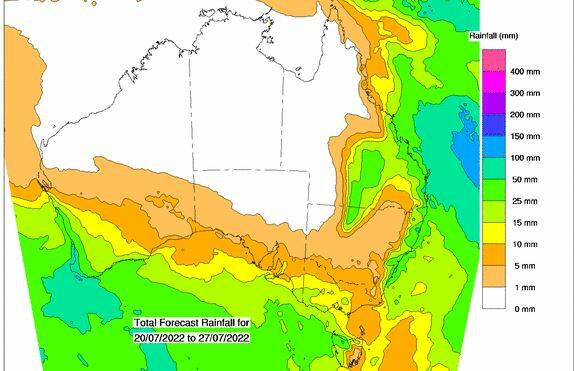
THE MUCH publicised climate drivers that have weather analysts at their highest levels of confidence on record in predicting a wetter than average spring look set to kick into gear this week.
Unseasonably heavy rain is expected in south-western Queensland, while Western Australia is also looking like receiving timely rain.
Falls of in excess of 25mm are expected over western Queensland regions such as Charleville and Cunnamulla over the next four days according to Bureau of Meteorology (BOM) while there is a similar forecast for the south-western corner of WA.
In WA, croppers will welcome the rain after a dry late June / early July.
After that, there are sporadic showers forecast in the eight-day outlook that will benefit western Victoria and eastern South Australia where it has also become relatively dry in recent weeks.
A run of heavy frosts, culminating in widespread temperatures below -2 in centres such as Horsham this week has also contributed to knocking crops around, with farmers keen to see some rainfall to help crops as days start to lengthen.
Falls of up to 15-25mm are expected through the south-west and into the southern Wimmera with 10-15mm in other agricultural areas.
For farmers through sodden NSW the news is mixed, there will be rain in the far north-west and along the east coast, but areas of the saturated Central West will receive a break with little rain forecast there.
The climate drivers behind the big wet continue to intensify.
Last week the Indian Ocean Dipole hit (IOD) hit its lowest value since 2016, which saw heavy rainfall over significant parts of north-west Victoria, eastern SA and southern NSW in particular, with an IOD negative correlated with above average rainfall.
The BOM's latest spring outlook has an incredible forecast of a 3.5 times normal chance of significantly wetter conditions than normal through key catchments such as the Murray and the Murrumbidgee.
In the Pacific Oceans, many international weather models are predicting a return to La Nina conditions at some stage in the spring.


